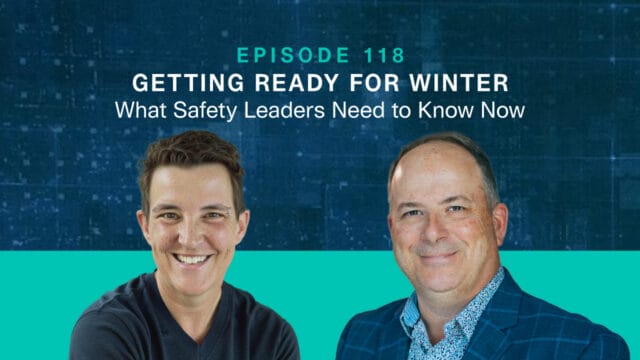
The Importance of Self-Care and Mental Health for Safety Professionals in 2025

Safety professionals play a critical role in ensuring workplace safety, but their own well-being often takes a back seat. The high-pressure nature of their work, exposure to trauma, and constant stress can have long-term consequences on mental and physical health. Prioritizing self-care and mental health are essential for safety professionals to maintain effectiveness and sustain a strong safety culture.
The Unique Challenges Faced by Safety Professionals
Exposure to Trauma
Safety professionals frequently witness the aftermath of workplace accidents, injuries, and fatalities. This exposure can take various forms:
- Directly witnessing accidents: Being first responders to serious workplace incidents can leave lasting psychological impacts.
- Investigating incidents: Reviewing accident scenes, interviewing witnesses, and reconstructing fatal events can lead to emotional exhaustion.
- Delivering difficult news: Informing families about workplace fatalities is an emotionally taxing responsibility.
- Vicarious trauma: Listening to accounts from injured workers and their families can cause secondary trauma.
- Cumulative stress: Repeated exposure to traumatic events builds over time, increasing mental health risks.
Moral Distress
Safety professionals often face ethical dilemmas due to competing pressures from cost-cutting measures, production demands, and lack of organizational support. This moral distress can manifest in several ways:
- Compromised safety standards: Budget constraints may force safety professionals to accept suboptimal safety solutions.
- Resistance to recommendations: Management may reject safety proposals due to economic concerns.
- Conflicting loyalties: Balancing worker safety with employer and stakeholder expectations can create ethical strain.
- Limited authority: Many safety professionals lack the influence needed to enforce necessary safety measures.
High Workloads and Long Hours
The role requires balancing risk assessments, regulatory compliance, training, and emergency response. The demanding workload can lead to:
- Chronic stress and exhaustion
- Limited personal time and canceled vacations
- Difficulty maintaining work-life balance
Regulatory Complexity and Accountability
Keeping up with evolving safety regulations requires continuous learning. Safety professionals bear significant responsibility for compliance, increasing stress and pressure.
The Consequences of Neglecting Mental Health
Ignoring self-care and mental health can have serious consequences:
- Burnout and turnover: Chronic stress leads to emotional exhaustion and high attrition rates.
- Impaired judgment: Fatigue and stress can result in poor decision-making, increasing workplace hazards.
- Reduced safety program effectiveness: An overworked safety professional may struggle to implement proactive measures.
- Higher healthcare costs: Stress-related health problems contribute to rising medical expenses for individuals and organizations.
- Weakened safety culture: A stressed safety team may struggle to foster a positive and proactive workplace safety environment.
Prioritizing Self-Care and Mental Health
Here are some practical strategies that safety professionals can use to manage stress, improve their mental well-being, and maintain a healthy work-life balance.
1. Stress Reduction and Mindfulness
Incorporating mindfulness techniques into daily routines can help manage workplace stress. Effective strategies include:
- Mindfulness meditation: Practicing awareness-based techniques helps reduce anxiety and improve emotional resilience.
- Deep breathing exercises: Controlled breathing can calm the nervous system during high-pressure situations.
- Journaling: Writing about daily experiences can help process emotions and identify stress triggers.
2. Exercise and Nutrition
- Regular physical activity: Exercise releases endorphins, which help combat stress and improve mood.
- Balanced diet: Proper nutrition supports cognitive function, energy levels, and emotional well-being.
3. Quality Sleep
- Maintain a consistent sleep schedule.
- Create a dark, quiet, and cool sleep environment.
- Limit screen time before bed to enhance sleep quality.
4. Setting Boundaries
Safety professionals must establish boundaries to maintain a work-life balance:
- Define clear working hours and avoid unnecessary overtime.
- Set limits on after-hours communication to prevent constant work-related stress.
- Create physical and emotional separation between work and personal life.
5. Seeking Professional Support
- Utilize employee assistance programs (EAPs) and mental health resources.
- Seek therapy or counseling when needed to address stress and trauma.
- Build a strong support network of colleagues and industry peers.
Organizational Strategies for Supporting Safety Professionals
Employers must take an active role in fostering a culture of mental well-being by implementing the following:
- Providing mental health resources: Offer access to counseling, workshops, and stress management programs.
- Creating a supportive culture: Encourage open discussions about mental health without stigma.
- Promoting work-life balance: Implement flexible work arrangements and reasonable workloads.
- Investing in training: Equip safety professionals with tools for stress management and trauma-informed care.
- Recognizing contributions: Acknowledge the critical role safety professionals play in workplace well-being.
Societal Changes to Improve Mental Health Support
- Reducing mental health stigma: Foster a culture where seeking help is encouraged.
- Improving access to mental healthcare: Ensure affordable and readily available mental health services.
- Advocating for stronger regulations: Support policies that improve workplace safety and reduce psychological stressors.
Conclusion
Safety professionals are essential to maintaining safe workplaces, but their mental well-being must also be a priority. In 2025 and beyond, organizations must recognize the unique challenges these professionals face and implement comprehensive support systems. By prioritizing self-care, mental health resources, and workplace culture improvements, safety professionals can continue protecting others while maintaining their own well-being. This shift is not just an ethical obligation—it is a strategic necessity for sustaining a strong safety culture.
About the Author
James A. Junkin, MS, CSP, MSP, SMS, ASP, CSHO is the chief executive officer of Mariner-Gulf Consulting & Services, LLC and the chair of the Veriforce Strategic Advisory Board and the past chair of Professional Safety journal’s editorial review board. James is a member of the Advisory Board for the National Association of Safety Professionals (NASP). He is Columbia Southern University’s 2022 Safety Professional of the Year (Runner Up), a 2023 recipient of the National Association of Environmental Management’s (NAEM) 30 over 30 Award for excellence in the practice of occupational safety and health and sustainability, and the American Society of Safety Professionals (ASSP) 2024 Safety Professional of the Year for Training and Communications, and the recipient of the ASSP 2023-2024 Charles V. Culberson award. He is a much sought after master trainer, keynote speaker, podcaster of The Risk Matrix, and author of numerous articles concerning occupational safety and health.




